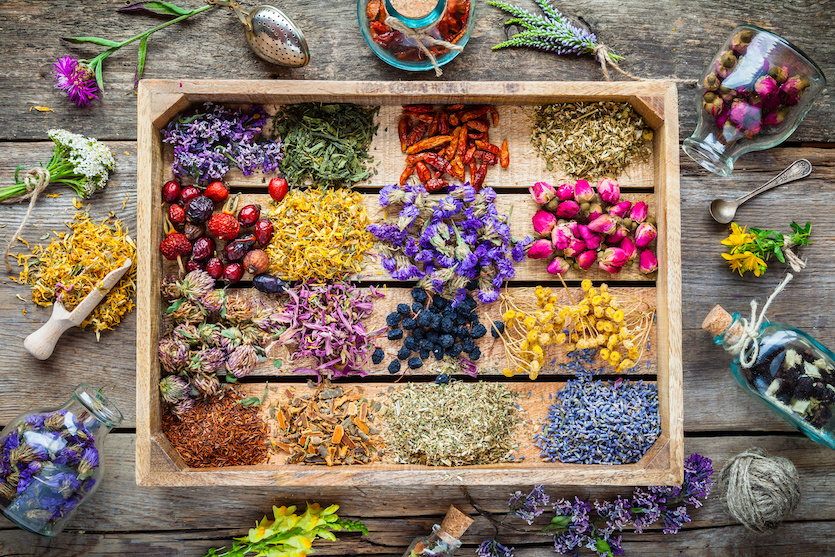Seeking Scent Serenity: The Benefits and Science of Aromatherapy

Each aroma your nose encounters sends your brain scurrying into action. Good smells may prompt a mental escape to a familiar location or pleasant memory with the accompanying calming feelings. But bad odors could send you spinning on your heels for a different kind of retreat.
These powerful reactions are the result of hard-won experiences by humans throughout the years. A sharp sense of smell was an evolutionary advantage. And it’s still coded into future generations’, shaping their interactions with the wider world.
Thanks to the abundance and advancements of modern life, survival might not depend on sniffing out rotten or harmful substances. But you can use your nose to aid your attempts to feel relaxed and refreshed during your busy days.
The Benefits of Aromatherapy: Why You Should Surround Yourself with Pleasant Aromas
Good smells are such a powerful draw that the global scented candle industry accounts for well over $300 million (USD) a year. It’s a much bigger number when you add in the fragrances, scented bath products, and other aromatic items people buy every day.
The money signals one thing: people are looking to improve the aromas around them. And this practice is nothing new. Ancient traditions around the world have used scent to better their lives for centuries.
That’s because the concept of using aromas to induce feelings is straightforward. And the benefits of aromatherapy are easily explained and experienced. They include:
- Promoting calm feelings
- Providing a sense of well-being
- Prompting soothing feelings of escape and peace
- Creating an uplifting environment
- Helping establish a sense of harmony between mind and body
- Sparking an energized feeling (for some specific scents)
- Promoting a grounded feeling
Learning what certain smells can do for you is the first step. But now it might help to understand the science of aromatherapy.
Simplifying the Science of Aromatherapy
Scents signal portions of your central nervous system that deal with emotions, memories, and more instinctual actions. So exploring the science of aromatherapy starts with the interface between your nose and brain—the olfactory nerve.
Your nasal cavity is full of olfactory receptors that gather information from what you inhale. That information is sent up to the olfactory bulb—housed in your forebrain—for processing.
Important parts of your brain connect directly to the olfactory bulb, but for the purposes of aromatherapy, the hippocampus and amygdala are the most interesting. That’s because these two areas are tied to memories and emotions, respectively.
That’s only the physiology side of the science of aromatherapy. Other research has focused on how these neural connections manifest in links between aroma, memory, and emotions. Studies have consistently yielded data supporting the ability of aromas to trigger memories and an array of feelings—calm, energy, and well-being.
Many aromatic compounds studied chemically, as well. There are plenty to pick from, because fragrant plants contain hundreds of different chemical compounds. Some of the most notable include: Limonene (from lemon), linalool (found in lavender), the sesquiterpenes/terpenes in pine, and peppermint’s menthol.
Your Guide to Finding the Scents for You
Everybody has their favorite smells. They’re the ones that bring a smile to your face or summon a happy memory. Seeking out those scents that promote feelings of calm or serenity in you is made easier by aromatic aids powered frequently by essential oils (potent distillations of plant material).
Selecting the right scent for your personal aromatherapy experience is complicated by the sheer number of available options. Don’t fret. Modern approaches and ancient traditions can help guide your choices.
Scents that promote feelings of calm or well-being include:
- Lavender
- Vanilla
- Jasmine
- Ylang ylang
- Rose
- Chamomile
- Geranium
- Bergamot
- Basil
If you’re looking to feel energized, there are scents are associated with those feelings, too. Look to citrus (lemon and sweet orange especially), peppermint, rosemary, cinnamon, thyme, and eucalyptus scents for prompting feelings of liveliness.
Also, earthy, woodsy, and some spicy scents are often seen as helping to provide a sense of groundedness.
Ancient Eastern traditions have incorporated aromatherapy for hundreds of years. But it relies on slightly different categorizations—yin, yang, and neutral scents.
Florals, citrus, and cooling aromas like peppermint are yin scents that can be associated with calm. Yang scents are spicy, warm, and energizing. They include rosemary, thyme, and ginger. Orange and sage are considered neutral, while woody smells can vary in their categorizations.
Start Your Own Exploration of the Benefits of Aromatherapy
Everyone has slightly different associations with smells, though. That means you may need to explore different scents and their impact on your feelings. Variety packs of essential oils are a popular starting place.
You can also mix different scents to create interesting blends. These combinations can create aromatherapy experiences. Try some common combinations:
- rosemary, lavender, orange, and peppermint
- eucalyptus, peppermint, basil, tea tree, and rosemary
- lemongrass, orange, cedarwood, lavender, and frankincense
- lemon, eucalyptus, and lemongrass
- lavender, eucalyptus, and frankincense
Whether blended or alone, essentials oils are super concentrated with aromatic compounds. You only need to crack open the lid and take a whiff to experience the calming (or energizing) feelings that may follow. You can also add a couple of drops of a favorite scent or blend to a diffuser. And enhancing your bath with tea tree or geranium is another good option.
Whatever approach you choose, use scent to escape your day and focus on providing yourself with a sense of well-being. Experiencing the benefits and science of aromatherapy can help you facilitate soothing feelings of escape and peace. That makes aromatherapy the perfect addition to your self-care routine.
